越南人认为的越南文化与中国文化的异同
越南文化和中国文化有什么主要的不同?越南人和中国人有很多共同的文化。他们庆祝相同的农历新年,享用相似的日常食物,也有相似的宗教信仰。
Quora读者的评论:
Anonymous
I am Vietnamese and I will say Vietnamese only managed to replicate the outer part of Chinese culture. Superficial stuff like New Year and mooncakes. On a deeper level, Vietnamese still need to learn a lot from the Chinese culture, Vietnamese only went half way in terms of fully absorbing Chinese culture and way of thinking. Or maybe as Vietnamese expanded away from China and came into contact with other cultures, the cultural values and way of thinking began to differ:
Short-sightedness: one of the things that drive me crazy about Vietnamese is the amount of people with very short sighted thinking. In my opinion the Chinese are very future orientated. Chinese people are well known for seeing things in the long term and planning for the future. Vietnamese don't know how to see far ahead and there is a tendency to just plan as you go along. Vietnamese also tend to not look at the overall big picture and tend to only see a small part of a problem
我是越南人,我认为越南人只是成功地复制了中国文化的表象。肤浅的东西,比如新年和月饼。在更深层次上,越南人仍然需要从中国文化中学习很多东西,越南人在充分吸收中国文化和思维方式方面只走了一半的路。也可能随着越南人从中国向外扩张,与其他文化接触交汇,他们的文化价值观和思维方式发生了变化:
目光短浅:越南人让我最受不了的一件事是,很多人的思维方式都非常短视。在我看来,中国人是非常面向未来的。中国人以着眼长远和规划未来而闻名。越南人不知道该如何看得更远,他们倾向于边走边看。越南人也往往不看全局,只盯着局部问题。
Complacency: another thing that Vietnamese lack is ambition. I go crazy when hearing people say that such and such is good enough. Chinese people are much more ambitious than Vietnamese, everything they do must be the biggest, best, number 1. Vietnamese are happy with being above average, mediocre, or better than the guy sitting next to us. So what if we are not the best? We just need to be better than him! Not to mention there are some people who prefer cuộc sống an nhàn , to an phận, in other words they prefer to not struggle and to just live a simple life. Needless to say Vietnam will never be a developed country with this sort of people!
Not as ambitious: “Chết có mang theo được không?” is what people will ask to overly ambitious people. Vietnamese don't promote ambition as much as Chinese. Yes Vietnamese adopted the Chinese God of Wealth but I think Vietnamese did not fully accept the Chinese culture of ambition or have lost some of these values as Vietnam drifted away from China.
Lack of resoluteness: Another point that drives me crazy. Chinese, when they say do is do. And they do until the end. Decision > execution. Bam. Finished. Vietnamese tend to be stuck at the end of the decision phase. Vietnamese are not firm and resolute enough. That's why the Vietnamese go nment takes forever to do anything and spend forever debating everything. And it’s the same for plans, we take forever to agree on a plan, then there is a 80% chance that the plan is cancelled, changed or delayed.
自满:越南人缺乏的另一件事是野心。当我听到人们说这个那个已经足够好时,我简直要疯了。中国人比越南人更有野心,他们做的每件事都力争最大,最好,力争第一。越南人只要超过平均水平、中等偏上或比身边人好一点,就心满意足了。如果我们不是最好的怎么办?我们只要比他强就行了!更不用说有些人就希望不费气力,过平庸的生活。不用说,有这样的人民,越南永远不会成为发达国家!
不求进取:越南人不像中国人那样有野心。是的,越南人也敬奉中国的财神,但我认为越南人没有完全采纳中国的野心文化,也可能随着越南逐渐远离中国,他们渐渐失去了这种价值观。
不够坚定:另一个让我发疯的地方。中国人,他们说干就干。而且会一直坚持到最后。决定了就执行,于是顺利完成。越南人往往会在决策阶段末端僵持不下。越南人不够坚定果断。这就是为什么越南政府不管要做什么事都要花上很长时间,要花很长时间来讨论扯皮。制定计划也是一样,我们要花很长时间才能达成一致,最后还有80%的可能性计划被取消,改变或推迟。
Jealousy of successful people and trying to put them down in order to make yourself look better/not accepting own failure: Vietnamese tend to disregard other people’s achievements in order to make themselves better. Instead of reflecting on their own failure, they pick on other people’s failures. One thing that Vietnamese love to to do is criticize other people.
Lack of pragmatism: Vietnamese are not very pragmatic. Vietnamese think with their emotion whereas Chinese people think with their head. Chinese look at facts then make their decisions whereas Vietnamese base it on their own feeling and ideology.
Boasting: I remember someone told me once, Chinese boast when they are at the top, Vietnamese boast when they are above the bottom. Vietnamese are already celebrating when they are nowhere near the best yet. And are already happy with the achievement.
Perseverance : When poor, both Vietnamese and Chinese work hard. But when reaching a moderate level of wealth, the Vietnamese will go off on a spending spree, buy 3 houses and a car, get a new girlfriend, wear flashy clothes, expensive shoes and go to the fanciest restaurants. Whereas the Chinese will continue to work hard until reaching the top before enjoying the wealth.
Risk adverse: Chinese are more willing to take risks than Vietnamese
I do love Vietnam which is why I want it to improve. And no I am not putting Vietnamese down. This is what I have observed and also what many Vietnamese recognize as the biggest flaws of Vietnamese characteristics
嫉妒成功人士,为了让自己不落人下风而贬低他人/不接受自己的失败:越南人为了让自己看着体面,往往会忽略他人的成就。他们不会反思自己的失败,反而会取笑别人的失败。越南人喜欢做的一件事就是批评别人。
不实际:越南人不太实际。越南人感性思考,而中国人理性思考。中国人看清事实后做出决定,而越南人则根据自己的感觉和观念。
吹牛:我记得有一次有人跟我说,中国人在事情做好后吹牛,而越南人一早就先吹起牛。越南人八字还没一撇时就已经开始庆祝了,而且对自己的那一点点成就已经感到很满意了。
毅力:贫穷时,越南人和中国人都努力工作。但当越南人的财富达到中等水平时,他们就开始大肆消费,买上三套房子、一辆车,交一个新女朋友,穿华而不实的衣服,昂贵的鞋子,去最高档的餐厅。而中国人则继续努力工作,不赚够钱不会开始享受。
墨守成规:中国人比越南人更愿意冒险。
我爱越南,所以我才希望她能越来越好。我并不是在贬低越南人。这是我观察到的,也是许多越南人认同的越南人性格中最大的缺陷。
Thanh Nguyen
I always think the main difference is Chinese people are much more ambitious than Vietnamese, which is what Vietnamese need to learn from.
Chinese people can build great things and grow much larger than Vietnamese all due to this ambition.
For example, many Vietnamese work very hard but they are easily satisfied. Once they reach a satisfactory level, they think it is enough so they stop trying. However Chinese people would keep pushing to get bigger and better.
This is why Vietnam has so many startups, but the owners of these successful businesses always sell their brand after reaching a satisfactory level of success. This is a big problem for Vietnam. We don’t have as many ambitious and big thinking people like China.
Foody - largest app for food and delivery service in Vietnam has been acquired by Singaporean firm
Highlands coffee - most popular coffee chain in Vietnam, even more popular than Starbucks is now 50% owned by a Filipino firm.
译文来源:三泰虎 http://www.santaihu.com/47368.html 译者:Joyceliu
我一直认为主要的区别是中国人比越南人更有野心,这是越南人需要学习的。
正是因为这种野心,让中国人民可以建造伟大的东西。
例如,许多越南人工作很努力,但他们很容易满足。一旦他们达到满意的水平,他们就觉得够了,就停下来休息了。但中国人会继续努力,变得越来越强大,越来越好。
这就是为什么越南有这么多的初创企业,但是这些老板总会在他们觉得心满意足时就把他们的品牌卖掉。这对越南来说是个大问题。我们没有那么多像中国这样雄心勃勃、想干大事的人。
富迪—越南最大的食品和快递服务公司被新加坡公司收购
高地咖啡—越南最受欢迎的咖啡连锁店,甚至比星巴克还受欢迎,现在50%的股份被一家菲律宾公司拥有了。
Vietnamese are very hardworking and creative people. We have an entrepreneurial spirit that is out of this world. If you’ve ever been to Vietnam you would quickly notice this. Vietnam has many local brands. However we lack big thinking, we call this “small country mentality”. China has long been an empire, they have big country mentality. My mother said the Chinese people are successful everywhere they go. We Vietnamese admire their ambition.
However an example of big thinking in Vietnam is Vingroup. Vietnamese people are very proud of Vingroup owner Pham Nhat Vuong. He’s an example of an ambitious thinker. He now has a business empire. His company runs everything from residential development, resorts, theme parks, hospitals, malls, schools and now they are making cars and electric scooters. Vietnamese even joke that we should now be called Vinnam.
Vietnam’s biggest problem is turning medium sized companies into big companies and big brands. Big brands that can not only conquer Vietnamese market but expand globally. Vietnam needs more big thinkers like Vingroup.
越南人非常勤劳,富有创造力。我们有一种世界上独一无二的创业精神。如果你去过越南,你会很快注意到这一点。越南有很多本土品牌。然而我们缺乏大局观,我们称之为“小国心态”。中国一直是一个帝国,他们有大国心态。我妈妈说中国人无论走到哪里都是成功的。我们越南人钦佩他们的雄心壮志。
不过越南也有一个干大事的公司,就是Vingroup。越南人民为Vingroup的老板Pham Nhat Vuong感到非常自豪。他是一个雄心勃勃的思想家。他现在建立起了一个商业帝国。他的公司经营着从住宅开发、度假村、主题公园、医院、购物中心、学校到汽车和电动摩托车的一切业务。越南人甚至开玩笑说,我们现在应该被称为旺南。
越南最大的问题是把中型企业变成大公司和大品牌。大品牌不仅能占领越南市场,还能在全球范围内进行扩张。越南需要更多像Vingroup这样的大企业。
Born in vinmec, eat at vineco, grow up in vinhomes, go to vinschool, drive vinfast, go on holiday at vinpearl, shop at vincom, buy grocery at vinmart.
If Vietnam has more big companies, we would be growing at a much faster rate.
在vinmec出生,在vineco吃饭,在vinhome的房子里长大,去vinschool上学,开车去vinfast,去vinpearl度假,在vincom购物,在vinmart买杂货。
如果越南有更多的大公司,我们的增长速度就会快得多。
Juliana Schone, B.A Chinese & Southeast Asian Studies, University of Washington (2016)
Originally Answered: How does Vietnamese culture differ from Chinese culture?
In term of family structure Vietnamese like most South east Asian countries, matriarchy is still popular despite the influence of Confucianism in Vietnam. Families like mine, the mother is the head of the family. Vietnamese women tend to be in charge. Historically if you know about the Trung Sisters and other female leaders in ancient history. Throughout Chinese history, women are often associated with evildoer and karma. Leaders like Wu Ze-Tian is known to history for cruelty and for her dictatorship. (history written by males heh?)
-We are more proud of our ancestor because we were able to push back 2 times Mongol’s invasion in 1300s while the Chinese lost to them
-There is a significant difference in our cuisine. We eat more fresh vegetables and more fruits.
最初的问题是:越南文化和中国文化有什么不同?
从越南的家庭结构来看,越南和大多数东南亚国家一样,虽然受到儒家思想的影响,但母权制仍然很普及。像我家这样的家庭,母亲是一家之主。家中事务一般都由女性掌管。历史上看,也许你也听说过Trung姐妹和其他古代女性领袖。纵观中国历史,女性往往与恶行和因果报应联系在一起。像武则天这样的领导人就以残暴和独材而闻名于世。(历史是由男性书写的,所以呵呵)
-我们更为我们的祖先感到骄傲,因为我们在14世纪击退了蒙古人的两次入侵
-我们的菜式有很大的不同。我们会食用更多的新鲜蔬菜和水果。
Dor Kimp
I think James Luong and the other answers have covered many aspects already. To add to the list I would say:
coffee culture
I don't know if you notice but Vietnamese have a very strong coffee culture. This is something I have not seen in Chinese or other Asian cultures. Not only do we have our own distinct styles of coffee but visiting cafes and having conversation over a cup of coffee is something that most Vietnamese have as a routine. That is why there are so many coffee shops in Vietnam
Cultural arrogance
Vietnam is a small country that was under imperial control of China and France. When Vietnam expanded down south, it came into contact with Cham/Hindu and Cambodian culture. Vietnam is therefore quite receptive of foreign culture and quite accepting of foreign influences
On the other hand China was a powerful empire. It historically suffers from Middle Kingdom complex or Han centrism so the Chinese have a sense of cultural arrogance that Vietnamese don't have.
This is completely different to Vietnam which never calls Chinese domination of Vietnam as a 1000 years of humiliation Or 60 years of humiliation under France. Vietnamese quite happily accept the ao dai that has significant chinese influence as our national dress and are quite excited to claim for ourselves all the Chinese, French and Cambodian influenced food in our cuisine
我认为Luong和其他回答已经说得挺完整了。我想补充的是:
咖啡文化
我不知道你们是否注意到了,越南人有很浓厚的咖啡文化。这是我在中国或其他亚洲文化中从未见过的。我们不仅有自己独特的咖啡风格,而且大多数越南人经常去咖啡馆,边喝咖啡边聊天。这就是为什么越南有这么多咖啡店的原因。
文化傲慢
越南是一个曾受过中国和法国帝国统治的小国。当越南向南扩张时,它接触到了詹/印度和柬埔寨文化。因此,越南吸纳了不少外国文化,也受到了很多外国的影响
另一方面,中国是一个强大的帝国。从历史上看,越南深受“中央王国情结”的困扰,因此中国人有一种越南人没有的文化傲慢感。
这与越南完全不同,越南从来没有把中国对越南的统治称为1000年的耻辱或法国统治下的60年的耻辱。越南人非常高兴地接受了越南旗袍,把其作为我们的民族服装,并且非常兴奋地宣称我们的越南菜中能看到中国、法国和柬埔寨的影响。
Racial awareness
It seems to me there is a much stronger racial awareness in Chinese culture than in Vietnamese culture. Most Vietnamese are unaware of sub-racial categories like East Asian vs Southeast Asians and don't really care much about skin colours. But it seems Chinese are much more passionate about these issues.
Sense of belonging
Fun fact: Vietnamese call everyone by family terms like uncle and aunty. As a result we feel a sense of belonging with anyone else who is Vietnamese. I heard that some people from China don't consider overseas Chinese to be Chinese . This is so strange for Vietnamese because to us, as long as you have Vietnamese blood or ties to Vietnam in any way (for example parents born in Vietnam) then we consider you Vietnamese. And overseas Vietnamese would not deny their Vietnamese identity. It used to be a stereotype in Vietnam that the Chinese have a very strong sense of solidarity but now I find that Vietnamese often have stronger solidarity amongst ourselves than the Chinese
种族意识
在我看来,中国文化中的种族意识比越南文化中的要强烈得多。大多数越南人不知道诸如东亚人和东南亚人的亚种族分类,也不太在意肤色。但中国人似乎对这些问题更为关注。
归属感
有趣的事实:越南人用家人的称呼跟每个人打招呼,比如叔叔、阿姨。因此,我们和所有越南人都有一种归属感。我听说有些中国人认为海外华人不是中国人。这一点对越南人来说很奇怪,因为对我们来说,只要你有越南血统或与越南有任何关系(例如父母在越南出生),我们就认为你是越南人。海外越南人也不会否认他们的越南身份。在越南,大家往往有一种错觉,觉得华人有很强的团结意识,但现在我发现越南人之间更为团结。
Vinny Le, former Software Engineer
Modern Vietnamese and modern Chinese have many differences.
Vietnamese writing use Latin script, Chinese use pictograms.
Vietnamese speaking language has 6 tones, Chinese has 4 tones.
Vietnamese women has more freedom and active role in society compare with Chinese women. In history Vietnamese has women as leader and general and even queen.
Religion both Chinese and Vietnamese major religion is Buddhism, however in Vietnam has more Christian followers than China, I would say second largest Christian in Asia after Philippines.
Both celebrate Moon calendar new year and other celebrations such as middle autumn.
Both ancestors worshiping.
Vietnamese food mostly fresh herbs. Chinese food mostly fry.
Vietnamese has coffee and tea culture. Chinese has only tea culture.
现代越南语和现代汉语有许多不同之处。
越南文字使用拉丁文字,中国使用象形文字。
越南语有6个声调,汉语有4个声调。
与中国女性相比,越南女性拥有更多自由、积极的社会角色。历史上,越南出现过女性领导人、将军,甚至女王。
中国和越南的主要宗教都是佛教,但是越南的基督教信徒比中国多,我认为越南人是亚洲第二大基督教信徒,仅次于菲律宾。
两国都庆祝农历新年和其他庆祝活动,如中秋节。
两国都祭拜祖先。
越南菜有很多新鲜的草本植物。中国菜大多是煎炸的。
越南人有咖啡和茶文化。中国人只有茶文化。
Nguyễn thị Tường Vân, studied at University of Economics and Law
Originally Answered: How similar is Vietnamese culture to Chinese?
A part of Vietnamese culture is from Chinese culture. Because the China troops were in here for over 1000 years, the Chinese citizen have living here before and after 1945 and until now. That the reason why the Vietnamese culture was influenced by Chinese.The lunar new year, mid-august, mid-year...holidays, the food, even the some of the performance and behaviors are also the same.
最初的问题是:越南文化和中国文化有多相似?
越南文化源自中国文化。中国军队在此驻扎了1000多年。这就是越南文化受到中国人影响的原因。农历新年,中秋节,年中……假期,食物,甚至一些表现和行为也都一样。
Trieu Le, Bachelor from University of Economics, Ho Chi Minh City
So I’ve been reading you guys’ opinions and summarize them with my opinion as well.
On the outside, it may be easy for us to say Vietnamese and Chinese are pretty the same. Vietnam is usually said to replicate the outer part of the Chinese culture: Lunar New Year – Tet, Mooncake – Bánh Trung Thu. However, on the inside, there are many differences due to the history of the two countries.
The differences between China and Vietnam:
1.On the one hand, China is big and has been influential throughout its history. The Chinese, as a result, are very proud of their country and they want to put out their best efforts to contribute to the country’s development. Chinese are so ambitious and they want China to be the number 1 country in the world.
I used to talk to 2 professors from Nanjing University of Aeronautics and Astronautics. They seemed to be very patriotic when I asked them about their country.
- On the other hand, Vietnam is just a small country and has been suffering from wars for so long from the very beginning of its history to the 21st century. That’s why we just want to live a peaceful, simple life: cuộc sống an nhàn, an phận.
Vietnamese are just as ambitious as Chinese but what they wish for their country (outcompete the U.S., being the number 1 country) is not as enormous as that of Chinese. However, I think Vietnam’s millennial entrepreneurs are really assiduous and truly determined to make contributions to Vietnam’s development.
我一直在阅读你们的观点,并与我自己的观点进行总结。
从表面上看,我们可能马上就会说越南语和汉语非常相似。越南通常被认为复制了中国文化的表象:农历新年,月饼,但由于两国的历史原因,两国在内在方面还是有一些不同。
中国和越南的不同之处:
1.一方面,中国是一个大国,在历史上始终具有十足的影响力。因此,中国人为自己的国家感到骄傲,他们希望尽自己最大的努力为国家的发展做出贡献。中国人雄心勃勃,他们希望中国成为世界第一大国。
我曾经和南京航空航天大学的两位教授交谈过。当我问起他们的国家时,他们都表现得非常爱国。
2. 另一方面,越南是一个小国,从建国之初到21世纪长期饱受战争之苦。这就是为什么我们想要一个和平的生活,简单的生活。
越南人和中国人一样雄心勃勃,但他们对自己国家的期望不想中国人(希望超过美国,成为世界第一大国)那么高。但我认为越南的新世纪企业家们真的很勤奋,已经下定决心要为越南的发展做出贡献。




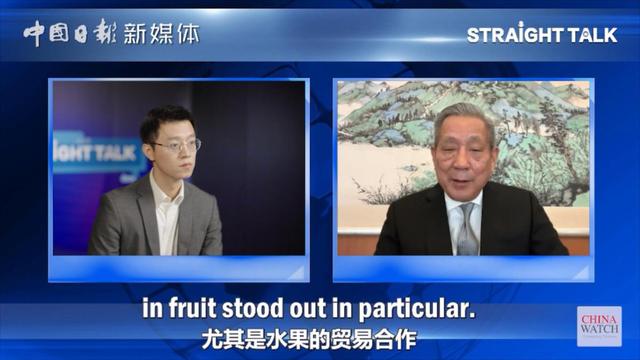
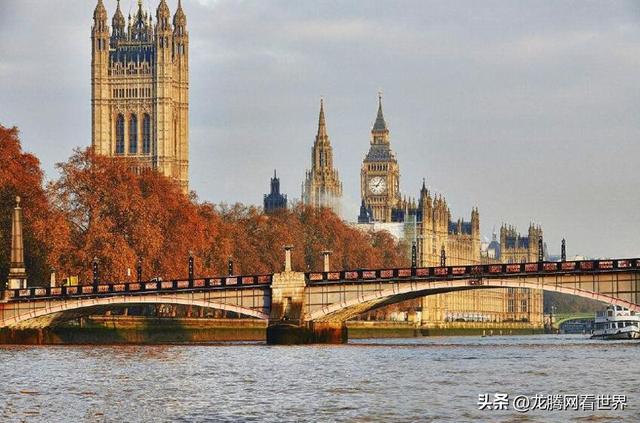
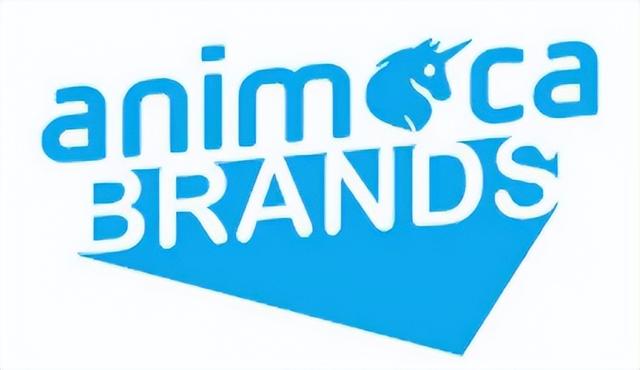
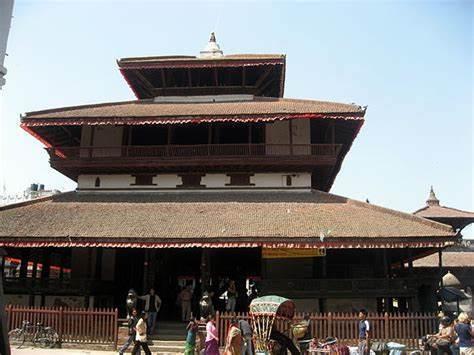


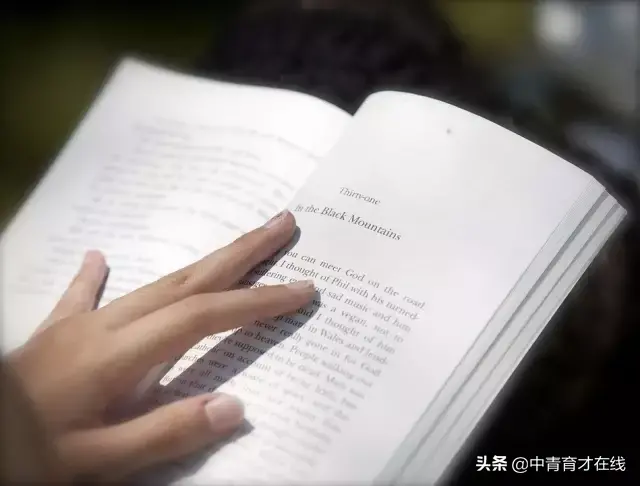











评论